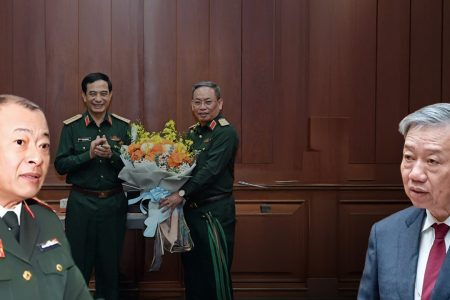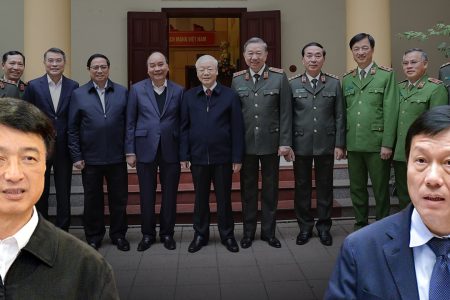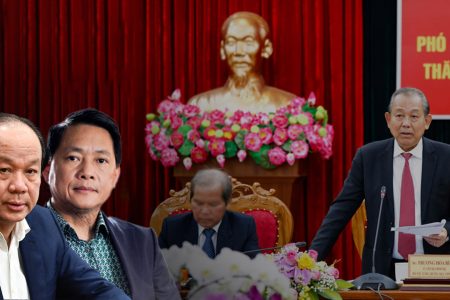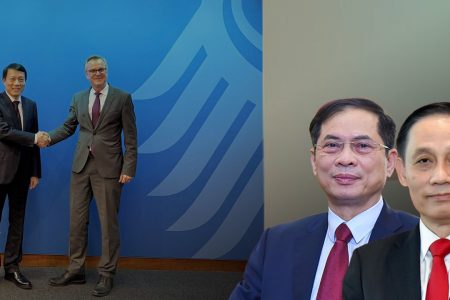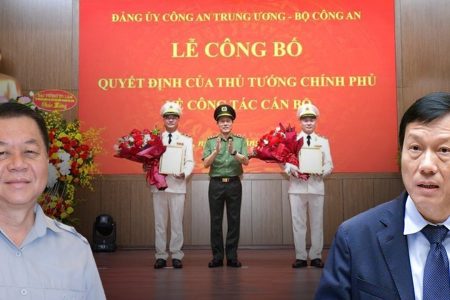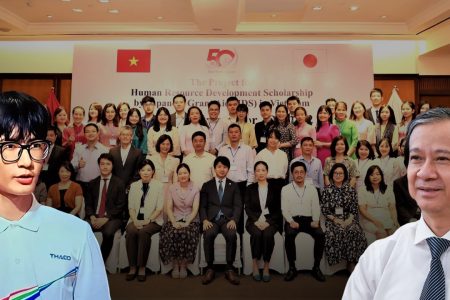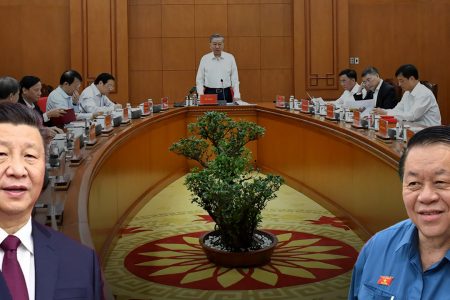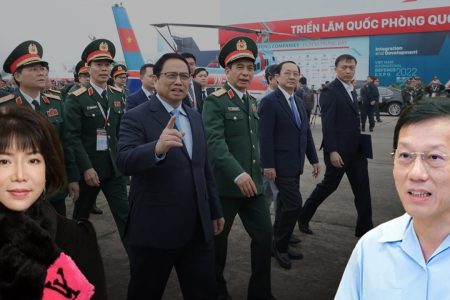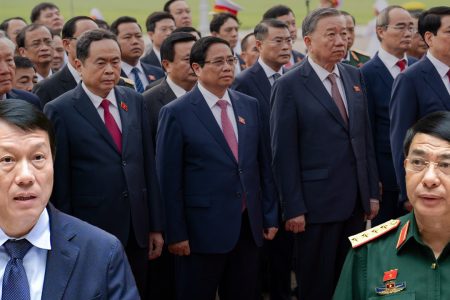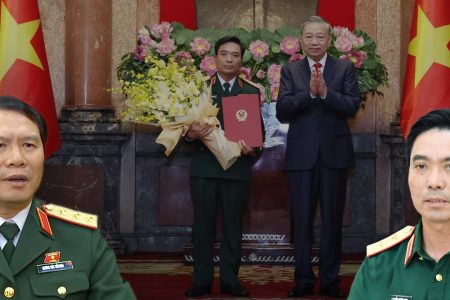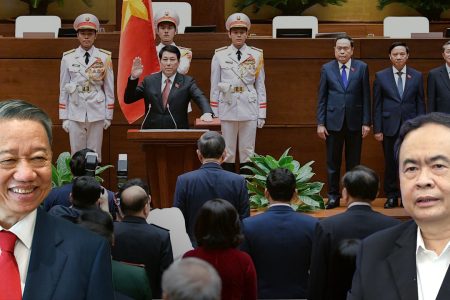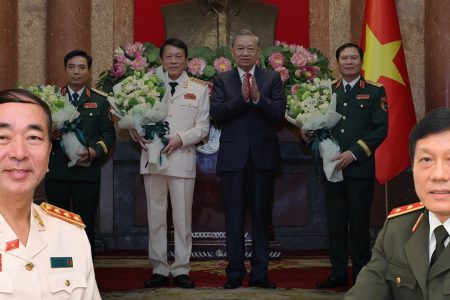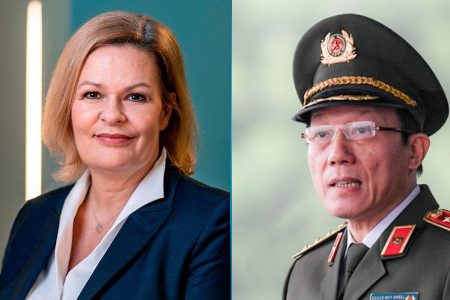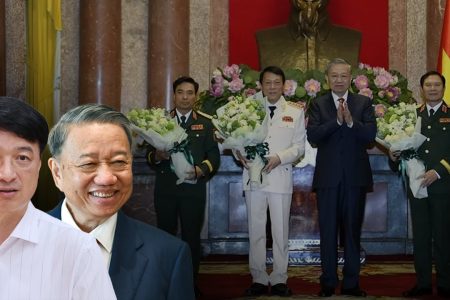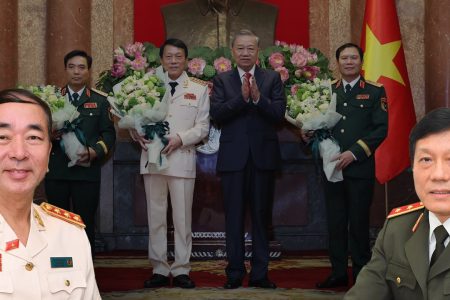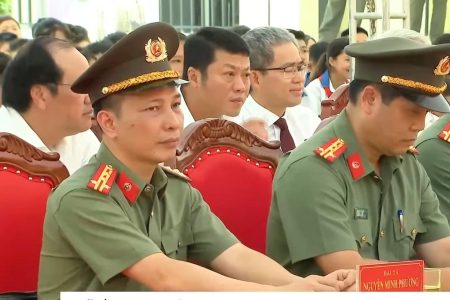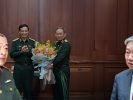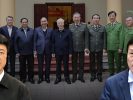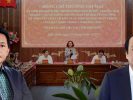
The foreign policy of the Communist Party of Vietnam is still considered by observers to be unstable, and is called a “swinging” foreign policy. As for General Secretary Nguyen Phu Trong, he calls it the “bamboo diplomacy” policy.
Only in 2023, Vietnam has continuously achieved a double in upgrading diplomatic relations to the level of “comprehensive strategic partnership” with the United States (September 2023) and Japan (December 2023). This was highly appreciated by domestic and international public opinion.
Besides, Vietnamese leaders continue to affirm the importance and top priority of Vietnam in its relationship with China.
Tuoi Tre newspaper reported on November 30 that Chinese Foreign Minister Wang Yi recently visited Vietnam. He had meetings with senior leaders in Hanoi over the past two days to discuss a series of cooperation issues and committed to strengthening comprehensive strategic cooperation between the two countries.
An informed source revealed to Thoibao.de that Wang Yi’s main purpose when coming to Vietnam this time is to check the preparations for the expected visit of Chinese President Xi Jinping to Vietnam this month.
At the meeting between Wang Yi and Vietnamese President Vo Van Thuong, the latter emphasized: “Vietnam – China are close neighbors, have many similarities in history and culture, and persevere in moving towards the Socialism under the leadership of the Communist Party.”
Similarly, VnExpress said that at the reception for Wang Yi on December 1, General Secretary Nguyen Phu Trong expressed his appreciation for China’s help, and at the same time, he also emphasized that Vietnam “Put top priority on the Vietnam-China relationship, support a Socialist China…”
As a reminder, Vietnam’s leading officials have recently asked the United States and Western countries to recognize Vietnam as having a market economy, with the hope of receiving support preferential treatment by the World Trade Organization (WTO).
Yet, when speaking to Chinese leaders, Thuong emphasized: “… Vietnam and China together persevere in moving towards Socialism, under the leadership of the Communist Party.”
Analysts have some thoughtful opinions about the “ghostly” but stupid attitude of Hanoi’s leadership:
- Vietnam has chosen to play with all countries: America, Russia, China, Japan, India… Now, everyone is friends, no longer distinguishing between dictatorship, democracy, and capitalism or Communism, which relationship is deep, to reach new heights?
Vietnamese people have a saying, “If there are many relations, there will be no real friend.” Hanoi’s diplomatic relationship is like that of a girl who has many boyfriends, with the purpose of having sex just to dig for gold and get some “strange feelings.” People like that are never loyal to their husbands and children. If they go too far, they become prostitutes.
- Among the countries that are Vietnam’s Comprehensive Strategic Partners, if compared, the most sincere Hanoi leadership is still Russia and China. However, clearly, if Hanoi relies on Russia or China, Vietnam will not gain anything economically. But the biggest benefit is that both Beijing and Moscow will protect the existence of the Hanoi regime. All policies and actions of Russia or China are supported by Vietnam for such reasons.
- However, Hanoi’s leaders do not know that playing two sides like this, the United States and Western countries hate very much. They know clearly, but they pretend like they don’t care. Hanoi’s leaders thought that was wise, but it turned out to be foolish. Because clearly, Vietnam has the reputation of not discriminating between partners, but definitely does not have economic benefits.
That is why, Vietnam has signed and become a Comprehensive Strategic Partnership with the US, Japan…, but still has to ask them to recognize it as a market economy, while they clearly do not.
The long-term strategic goal of the United States and Western countries is to eliminate all dictatorial countries and autocratic political institutions. Because that is the seed of world instability on a global scale.
Therefore, Vietnamese leaders should never think that they can use a two-faced policy to deceive the US, the West, Japan… If you choose a side, choose only one side, but you cannot swing with two-line diplomacy.
Vietnam can learn the lesson of Hunsen in Cambodia, relying entirely on Beijing. In return, China will reciprocate economically and politically sustainably. When things change, Vietnamese leaders seek refuge in China, like Hoang Van Hoan before.
If you are determined to upgrade relations with the US, Japan and Western countries, then go with them. When there are changes, they will help, the lessons of the East Sea (South China Sea) are still palpable. Let me ask, if China now attacks Vietnam’s frontline islands in the Truong Sa (Spratlys), who will help Vietnam?
Don’t forget, once Hanoi’s leadership is still ambivalent, relying on the United States and the West for economic development, but still relying on China and Russia to protect the dictatorship, then America and The West will never open their wallet to help. It is unlikely that the US will recognize a market economy for Vietnam.
Thoibao.de (Translated)



